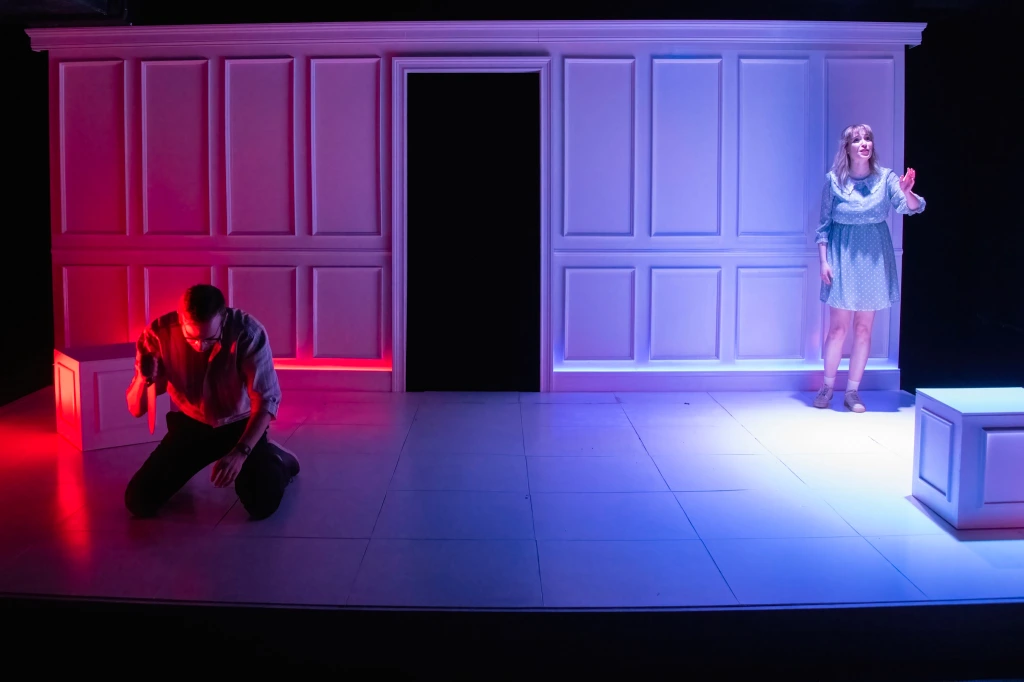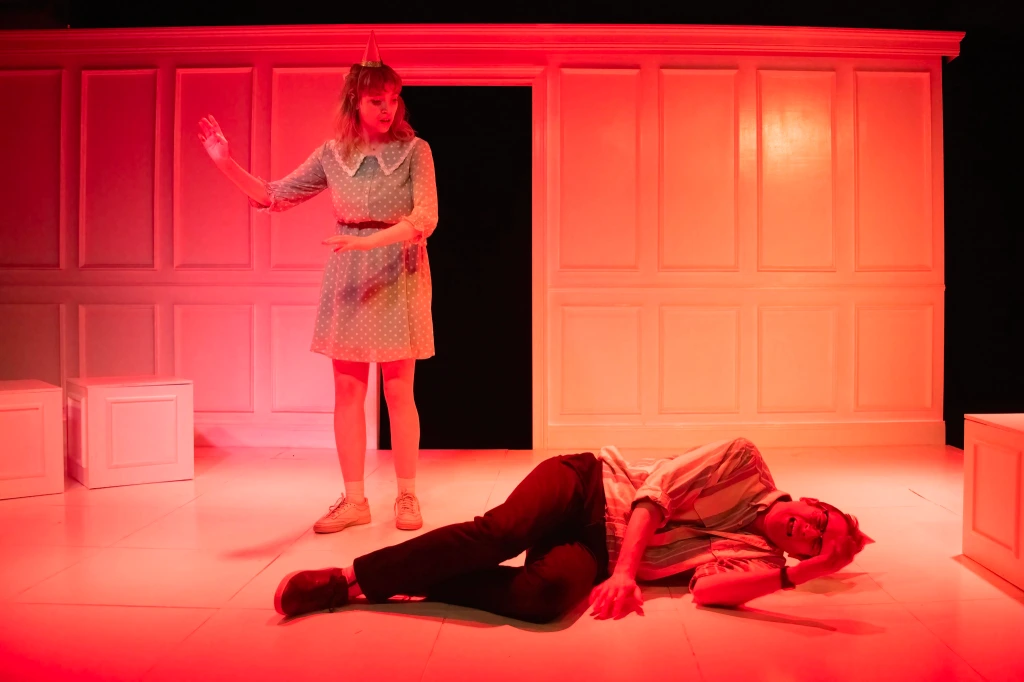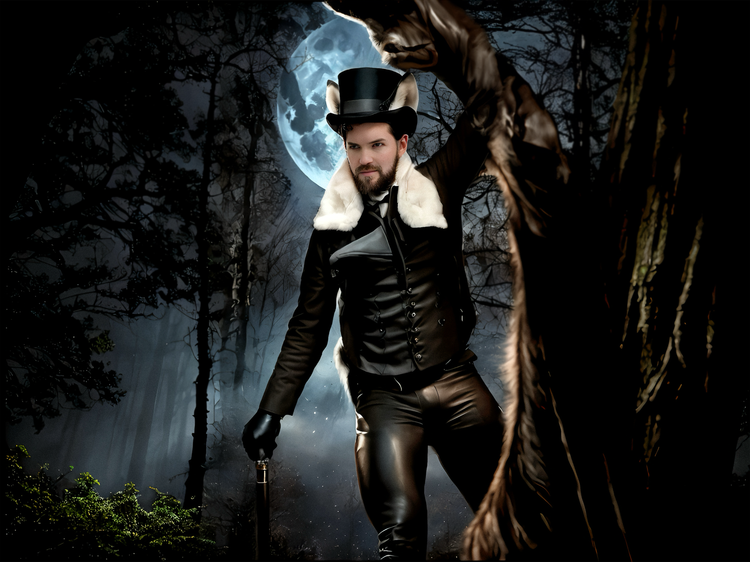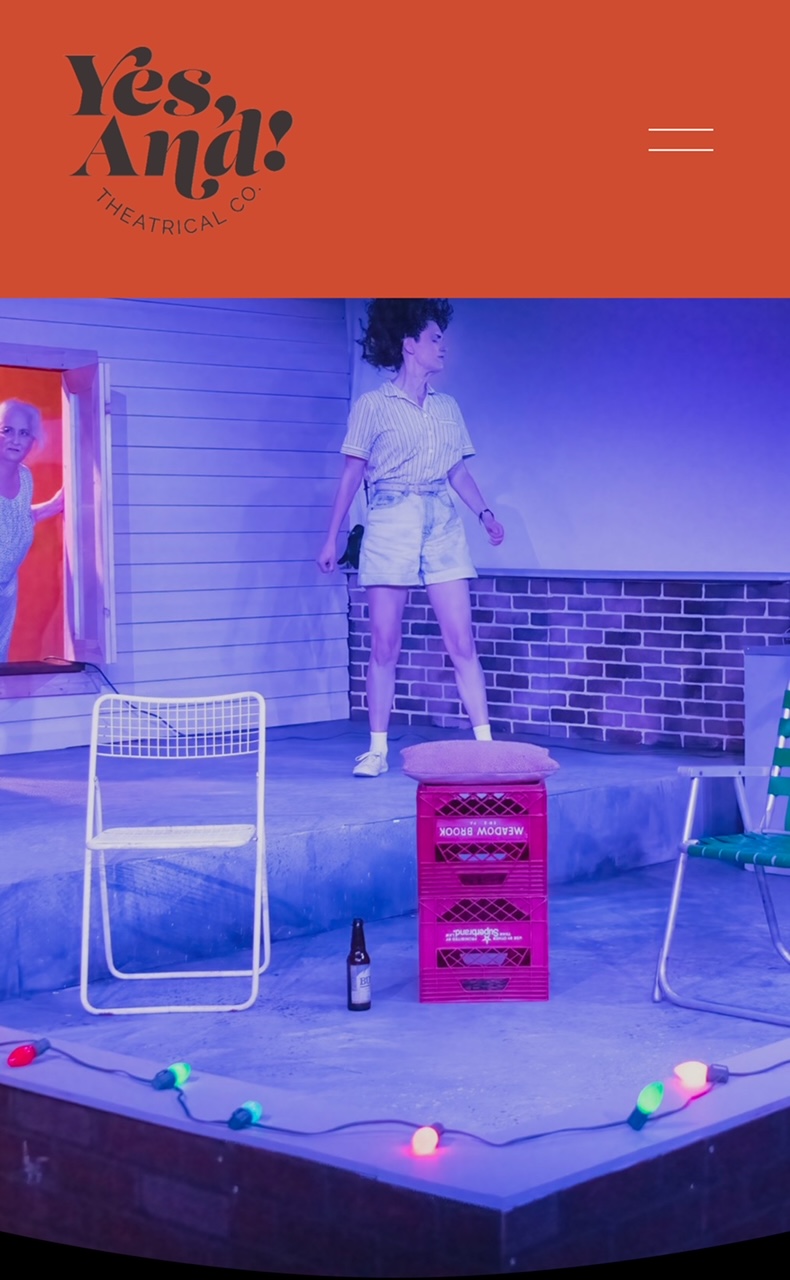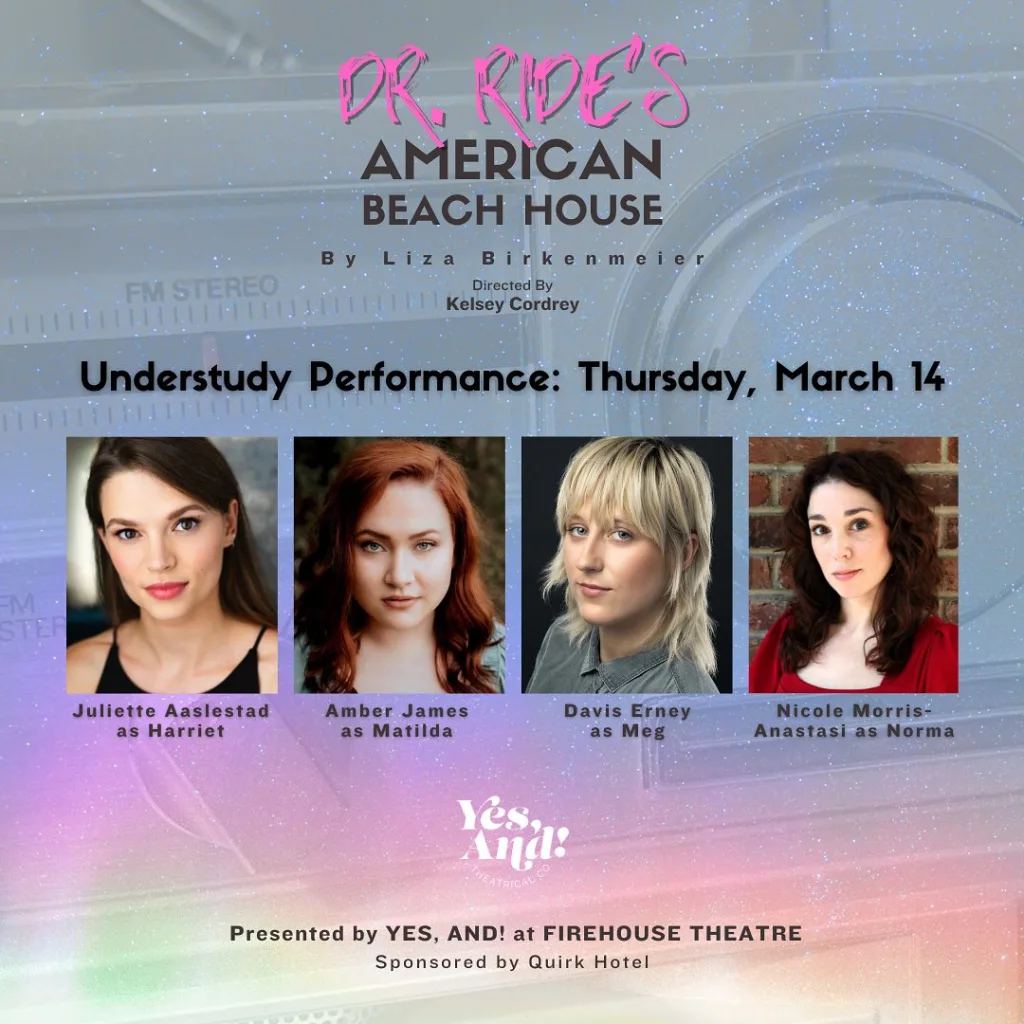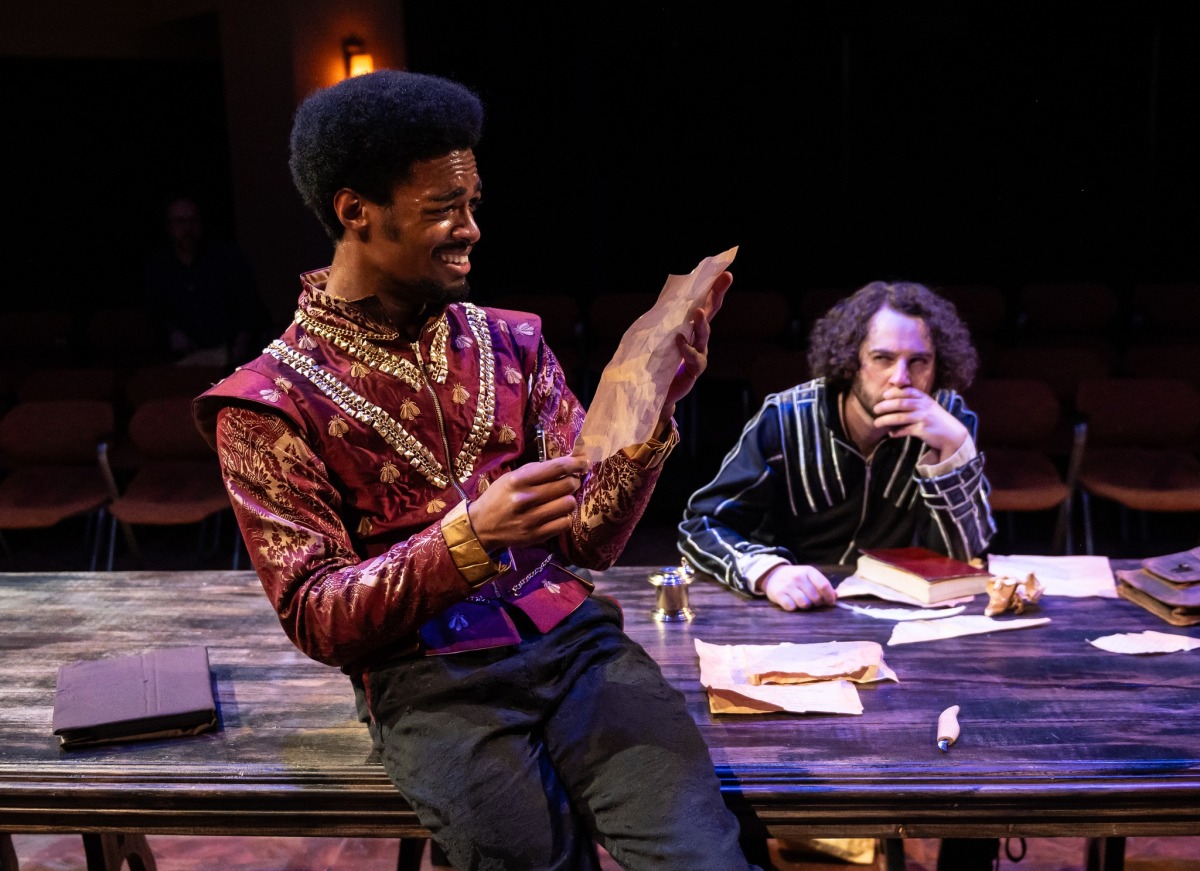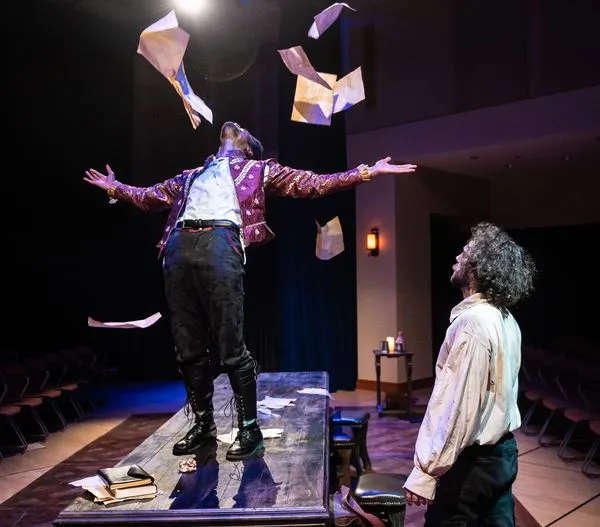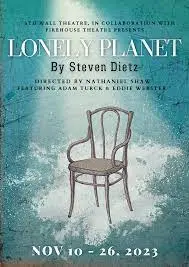VaRep-JCC Partnership
A Theater Review
Produced By: Virginia Rep in partnership with the Weinstein JCC Jewish Family Theatre
At: Theatre Gym, in the November Theatre complex, 114 W. Broad St., RVA 23220
Performances: March 15-April 7, 2024
Ticket Prices: $40
Info: (804) 390-3390; http://www.virginiarep.org
This is a rare (for me) re-review. I first saw this production of Zero Hour at the Weinstein Jewish Community Center nearly a year ago (“Jason Marks is Zero Mostel,” RVArt Review, April 6, 2023, https://jdldancesrva.com/2023/04/06/jason-marks-is-zero-mostel/). But, humor me. Don’t read or re-read that review until after you read this one, and I’ll do the same. I won’t go back and re-read that first review until I finish writing this one.
With this VaRep partnership, while the location is different, Debra Clinton is still the director, and Jason Marks is still Zero Mostel. This time, the story and the script were familiar, but the production was just as fresh and vital as it had been the first time. This did not feel like a re-run; Mostel was such a complex and dynamic person that there was still much to learn that I had missed the first time, or that I saw with new eyes after the passage of time – and world events.
Jason Marks dives so deeply into the character that it is easy to forget he is an actor – we are spending an evening with Zero Mostel. Samuel Joel “Zero” Mostel was born February 28, 1915 (my birthday, but 4 decades before me) in Brooklyn, NY (as was I).
As a comedian, Mostel rose in stature to become a headliner at New York’s Café Society, a popular night spot and as an actor, Mostel specialized in comic roles: he was, perhaps, best known for his portrayal of Tevya in Fiddler on the Roof on Broadway.
Somewhere along the way, during the presidency of Harry S. Truman, the USA became embroiled in blacklisting activities. After World War II, the USA and Russia became involved in a “Cold War,” and People – particularly actors and other creatives – who were suspected of being members of or sympathizing with the Communist Party – were brought before the House Un-American Activities Committee (HUAC) where they were questioned and expected to name names. Many citizens were tried, and many actors were blacklisted or prevented from working in film, television, or on stage. Mostel (or maybe I should say the playwright, Jim Brochu) mentions a few well-known names who were caught up in this wide-ranging net, including the renowned choreographer Jerome Robbins and the comedian and actress Lucille Ball, TV star Phil Silvers, screen writer Ring Lardner, Jr., and screen writer Martin Berkeley who is described in Zero Hour as “the Babe Ruth of stool pigeons.”
Other victims of the Red Scare: Orson Wells, Burgess Meredith (credited, in the script, with the line, “hold onto your tits, it’s Zero Hour!”), Arthur Miller, Charlie Chaplin, Lena Horne, Langston Hughes, Pete Seeger, Gypsy Rose Lee, Artie Shaw, Dashiell Hammett, and the list goes on and on and on…
There are many memorable moments in Zero Hour, both dramatic and historic. The one-hander paints a vivid picture of Mostel’s journey “from blacklist to White House in 10 years.” We learn of Mostel’s tumultuous love affair with his second wife, Kate. A former Radio City Music Hall Rockette, Mostel’s Orthodox Jewish parents did not accept Kate because she wasn’t Jewish, and his parents never met Kate or their two grandchildren.
Then there’s the horrible bus accident in 1960 that nearly ended his life as well as his career, leaving him crippled and in pain. But he stubbornly avoided amputation, and went on to star in Waiting for Godot, Rhinoceros, and the Broadway musical, A Funny Thing Happened on the Way to the Forum. Marks shares all of this and more with a wild and vivid mixture of humor, sarcasm, and melodrama while his character is being interviewed by an invisible rookie reporter. “Why do I call you putz?” Mostel asks the report early in the interview, “because I don’t know your name!”
Mostel warms up to his interview as we warm up to him. The interview takes place in Mostel’s West 28th Street painter’s loft. In addition to being a prolific and popular performer, Mostel was also a visual artist whose abstract paintings have been sold at auction and displayed in galleries and museums. My notes from the show list 5,000 paintings, 15 Broadway shows, and 25 movies.
Zero Hour is an engaging tour de force that is equally entertaining and educational. And now, I feel, is the time to go back and read what I said about Zero Hour the first time I saw it:
“Zero Hour is one of the funniest shows I’ve ever seen and it appears to have been a perfect vehicle for Jason Marks.” – Yes, I still hold this opinion!
“Zero Hour is a skillful balance of biography and entertainment. For those unfamiliar with Zero Mostel, it is informative, and for those who were already fans, it might reveal a few unknown nuggets.” – Again, I second that first impression.
“All of this, and more, is lovingly and capably captured by Marks under the director of Debra Clinton. Clinton, in the Director’s notes, paid homage to Mostel’s individuality – his commitment to standing up for what he believed even to the detriment of his career – “his honesty, passion, and empathy.” – ditto
And finally, I often find it weird to read things I’ve written previously, but this holds true. That’s my story and I’m sticking to it: Sometimes it was hard to tell where Marks ended and Mostel began. I am sure playwright Jim Brochu who originally starred in his own play, would approve of Marks’ interpretation.” There are a FEW opportunities remaining to see this production of Zero Hour. I suggest you go see it. You won’t be sorry.
———-
Julinda D. Lewis is a dancer, teacher, and writer who was born in Brooklyn, NY and now lives in Eastern Henrico County. When not writing about theater, she teaches dance history at VCU and low impact dance fitness classes to seasoned movers like herself, and occasionally performs.
———-
ZERO MOSTEL
Written by Jim Brochu
Directed by Debra Clinton
Cast List
Zero Mostel – Jason Marks
Direction & Design
Direction – Debra Clinton
Set & Lighting Design = Todd Schall-Vess
Wig Design = Kevin S. Foster II
Stage Management – Hayley Tsutsumi
Zero Hour runs March 15 – April 7, 2024
at the Theatre Gym at the November Theatre, 114 W. Broad Street, Richmond, VA 23220
Run Time
The play is presented in two 45-minute acts with one 15 minute intermission
Tickets
Box Office: (804) 282-2620
Information: http://www.virginiarep.org
Full Price Tickets: $40.00
Discounted Group Rates available
Show Photography by Jay Paul
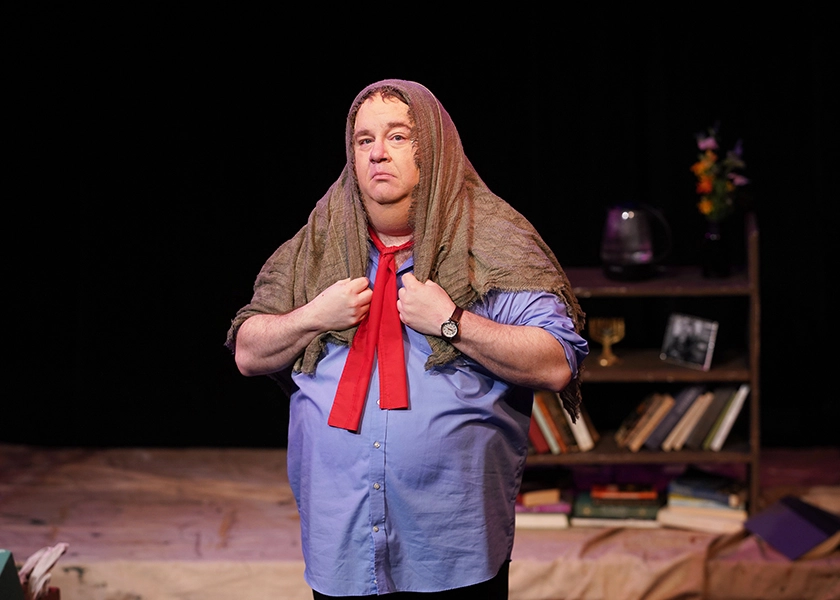


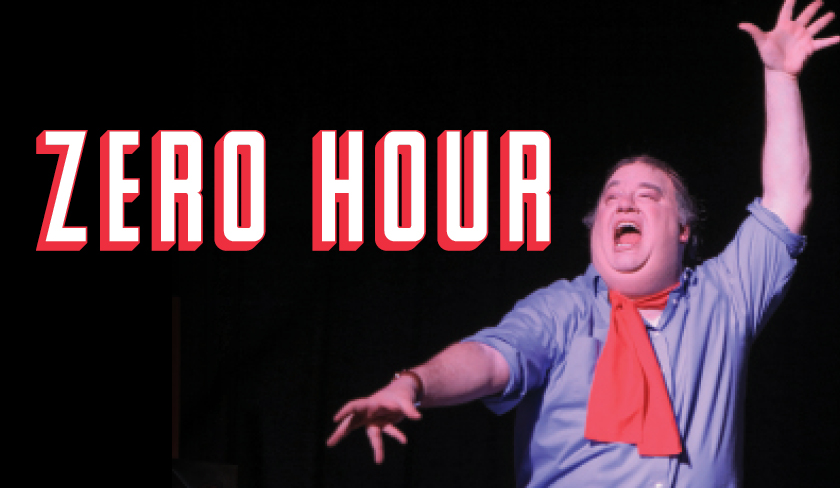
Make a donation if you like what you read here
rvart review is independently produced and received no outside funding or advertising revenue
Make a monthly donation
Make a yearly donation
Choose an amount
Or enter a custom amount
Your contribution is appreciated.
Your contribution is appreciated.
Your contribution is appreciated.
DonateDonate monthlyDonate yearly



